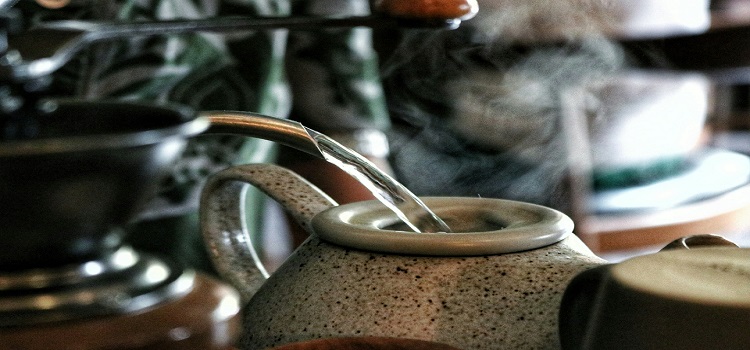As an Amazon Associate I earn from qualifying purchases.
How Long Does It Take for an Electric Water Heater to Heat Up Food? Understanding the Process
Introduction: An electric water heater plays a crucial role in food preparation settings, providing hot water for various culinary tasks such as cooking, blanching, and sanitizing utensils. Knowing how long it takes for an electric water heater to heat up food is essential for maintaining efficiency and productivity in commercial kitchens and food service establishments. In this guide, we’ll explore the factors affecting heating time, along with tips for optimizing performance and ensuring food safety.

Uses of Electric Water Heaters in Food Preparation: Electric water heaters serve several purposes in food-related applications:
- Cooking: Boiling water for pasta, rice, and other ingredients.
- Blanching: Preparing vegetables for freezing or further processing.
- Sanitizing: Sterilizing kitchen equipment and utensils to prevent cross-contamination.
- Beverage Service: Providing hot water for tea, coffee, and other beverages.
Benefits of Electric Water Heaters for Food Service:
- Consistency: Electric water heaters deliver precise temperature control, ensuring consistent results in food preparation.
- Speed: Rapid heating capabilities reduce waiting times and increase kitchen efficiency during peak service hours.
- Hygiene: Hot water from electric heaters effectively sanitizes surfaces, minimizing the risk of foodborne illness.
- Versatility: Adjustable thermostat settings accommodate various cooking techniques and recipes, from delicate poaching to vigorous boiling.
How Long Does It Take for an Electric Water Heater to Heat Up Food?: The time it takes for an electric water heater to heat up food depends on several factors:
- Water Volume: Larger quantities of water require more time to reach the desired temperature.
- Starting Temperature: The initial temperature of the water affects heating time, with colder water requiring more energy to heat.
- Heating Element Power: Higher wattage heating elements can heat water more quickly but may consume more energy.
- Insulation: Well-insulated water heaters retain heat more efficiently, reducing heat loss and heating time.
As a general guideline, an electric water heater typically heats water for food preparation purposes within 20-30 minutes. However, heating times may vary based on the specific model, settings, and environmental conditions.
FAQ – Frequently Asked Questions:
- Can I use an electric water heater to cook pasta and other ingredients?
- Yes, electric water heaters are commonly used in commercial kitchens to boil water for cooking pasta, rice, and other ingredients.
- How can I ensure that water heated in an electric heater is safe for food preparation?
- Use a food-safe thermometer to verify that the water reaches the recommended temperature for cooking or sanitizing, typically 160°F (71°C) or higher.
- Can I adjust the thermostat settings on an electric water heater for precise temperature control?
- Yes, most electric water heaters feature adjustable thermostats that allow users to set the desired temperature within a specified range.
- Are there any special maintenance requirements for electric water heaters used in food service?
- Regular cleaning and descaling of heating elements and tank interiors are essential to prevent buildup and ensure optimal performance.
- Can I install multiple electric water heaters to meet the hot water demand in a commercial kitchen?
- Yes, installing multiple water heaters in parallel or using larger capacity units can accommodate high-volume hot water needs in commercial settings.
- Is it safe to leave an electric water heater running continuously in a commercial kitchen?
- Continuous operation is common in commercial kitchens to maintain a constant supply of hot water for cooking and sanitation, but energy-saving features such as timers and thermostatic controls can help reduce energy consumption during idle periods.
- Can I use an electric water heater to heat sauces, soups, and other liquid ingredients?
- Yes, electric water heaters are suitable for heating a wide range of liquid ingredients used in cooking and food preparation.
- How do I know if my electric water heater needs repair or maintenance?
- Signs of malfunction include inconsistent water temperature, unusual noises, or visible leaks. Prompt inspection and servicing by a qualified technician are recommended to prevent downtime and ensure food safety.
- Can I use an electric water heater to keep prepared food warm for serving?
- Yes, electric water heaters with adjustable thermostats can maintain water at a steady temperature ideal for holding cooked food at safe serving temperatures.
- Are there any energy-saving tips for operating an electric water heater in a food service setting?
- Implementing energy-efficient practices such as insulating hot water pipes, using low-flow faucets, and scheduling heating cycles during off-peak hours can help reduce energy consumption and operating costs.
Conclusion: Understanding how long it takes for an electric water heater to heat up food is crucial for efficient and safe food preparation in commercial kitchens and food service establishments. By considering factors such as water volume, starting temperature, and insulation, operators can optimize performance, ensure food safety, and maintain high standards of culinary excellence.
As an Amazon Associate I earn from qualifying purchases.
Leave a Reply